
The Aftermath of the Final Draft: Novels
So I'm about to use this post as catharsis. I've done something tremendous. So momentous that it's a little unsettling. Or maybe I've made it unsettling by overthinking. But I can't help but wonder if this is a normal part of the process once a writer has submitted the final draft of her novel to an editor.
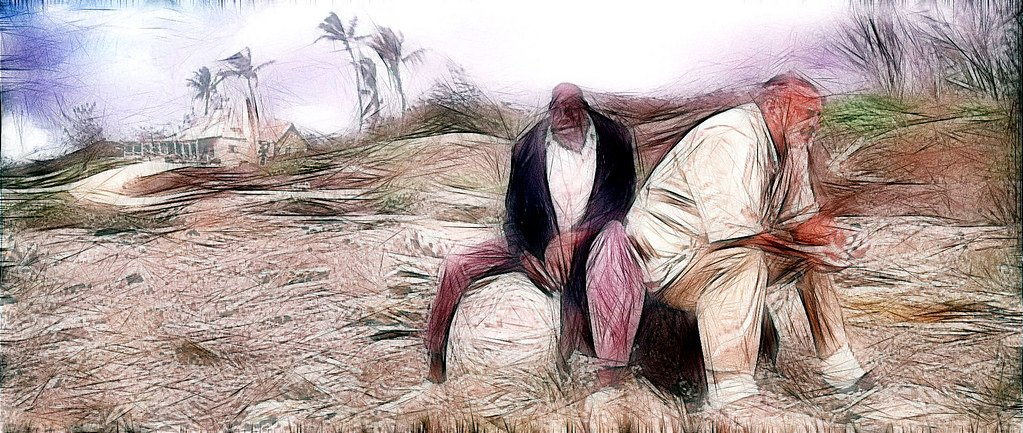
I received edits from my editor a couple months ago, and I immediately went into hiding. All my thoughts were focused on one thing: revise. The closer I came to the deadline, the more intense the focus became. Sure I asked for a couple extension. My book is my baby and I wanted to hold onto it for as long as I could. Then it came to the last extension. The book needed to move toward production, and I had squeezed out every possible moment.
“There is a ruthlessness to the creative act. It often involves a betrayal of the status quo.” ― Alan Watt
Then on Tuesday morning it happened. It was the first day of June. The year was 2021. Just after Labor Day weekend. Rain had been falling off and on for days. Tahlequah, Oklahoma had just left behind it's harshest storms and true summer sun was within grasp. That morning I woke and said, "I'm ready to let the book go. It's time." I had spent all my mental energy on this day.
Fast forward about two hours, I typed a short note in an email, clicked attach, and then the last step: send. It was done. The final manuscript shot into cyberspace and landed inside the inbox of my editor and agent. Congratulatory emails returned. My final draft was officially submitted.
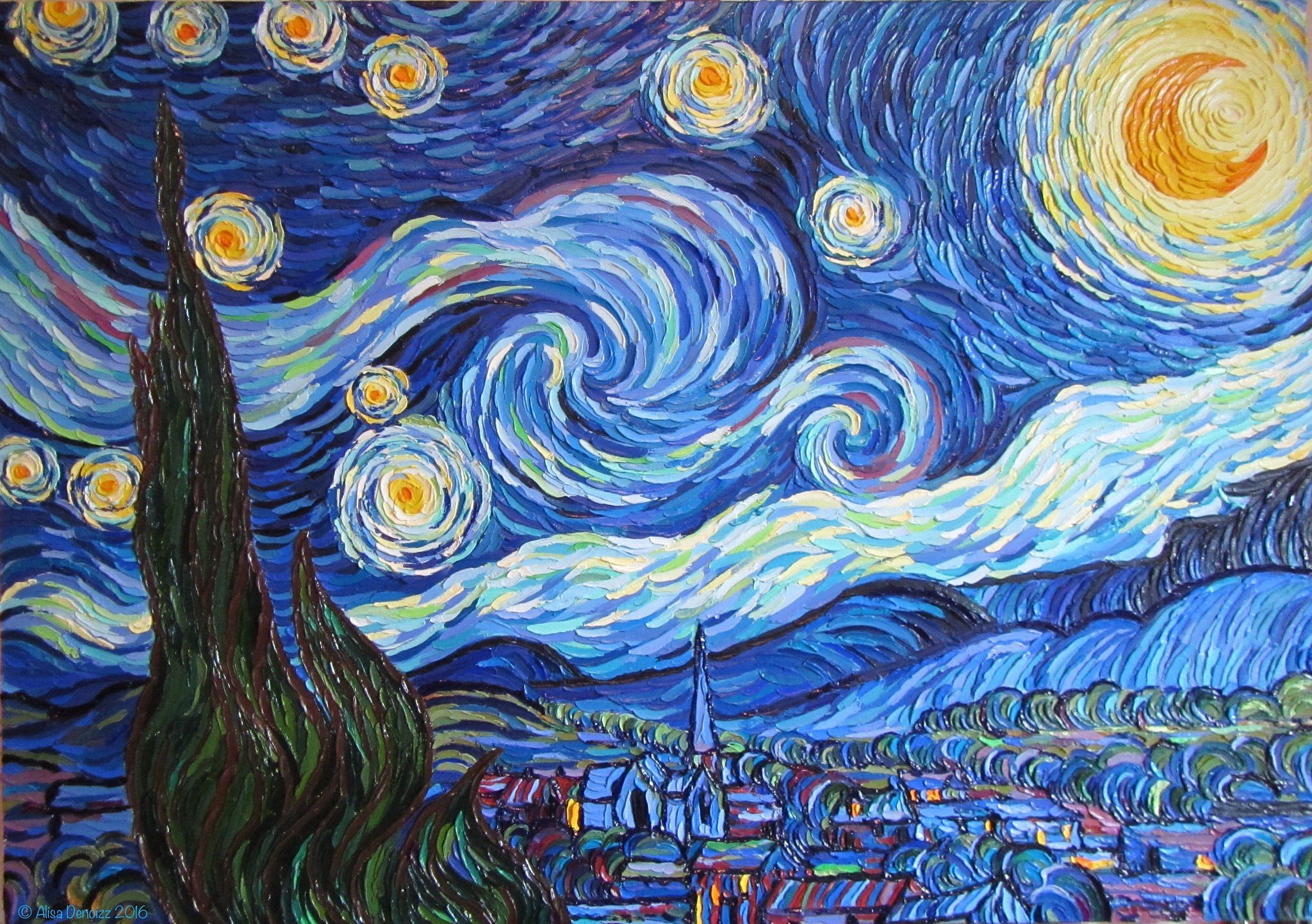
What happened next was a complete shock. I thought I'd be relieved and excited and would run around the office giving everyone high fives and people would take me out for a meal and some drinks and I'd fly in a jet to Peru and dine with elite writers from multiple hemispheres. But no. That did not happen.
What did happen? I was instantly depressed. I was suddenly sad. I was oddly withdrawn.
I thought, What's going on with me? This can't be normal.
“Writing is a struggle against silence.” ― Carlos Fuentes
I had spent so much time focused on the revisions and the moment I'd click send that I had not even thought about what was to come afterwards.
The only thing I can equate it to is the same feeling I had when my three adult children moved out. Like the time when my oldest son and I had breakfast one day. An innocent enough meal. But it was the first meal we had together where he'd leave in his car to his apartment and I'd leave in my car to go to my home. He wasn't coming home with me. He was no longer a child, and what we once had would never be the same again.
I suddenly realized I was mourning the loss of my book. I'd never delve into its pages the same way again. I'd reread the pages at some point in the future, but it'd never be the same. I no longer had anymore influence on it's words, it's chapters, it's characters. Now they had to do everything thing on their own.
This was the moment I realized why I kept asking for extensions. Certainly, there were tweaks to be made, but I couldn't deny there was this sense of trying to hold on, trying to have one more moment, one more memory before it all changed. Even if I didn't consciously realize it. I was holding on as long as I could.
It's scary when your child steps into the big, bright world. There are so many obstacles and pitfalls. But you can't be there for everything. To a certain extent, your baby needs to make mistakes--no matter how young you perceive him to be.
“Some part of me knew from the first that what I wanted was not reality but myth.” ― Stephen King
I've been working on this novel for a very long time. The oldest story in the novel was written in 2008. That's 14 years ago! By the time my book hits the market, it'll have been 15 years from the moment the oldest story was written. It took one and a half decades for this novel-in-stories to reach maturity. That in itself is a unique story to share.
But I have to move forward. I've popped open my other two novels and added a sentence in one, reread a few pages in the other, and stared at the line of chapters running down my flash drive. I want to be ready to move forward. But I might have to give myself a little more time. I thought this post was going to be my release point. But now I'm suddenly realizing that I'm still trying to hold on a moment longer.
Underground Matriarchy: #WIP Debut Novel "Unsettled Between"
We've heard the reified stories of men brutalizing men. A rehearsal of patriarchy. In fact, hyper masculine bullshit permeates our lives. We see in the media, if not in our daily lives, the ramifications of patriarchy unchecked. So what's the answer? Men are being called out now more than ever and violence continues. Wars haven't stopped. We hear about a mass shooting in the U.S. almost everyday. In my debut novel, Unsettled Between, Ever Geimausaddle faces his own brutality with the help of an underground matriarchy.
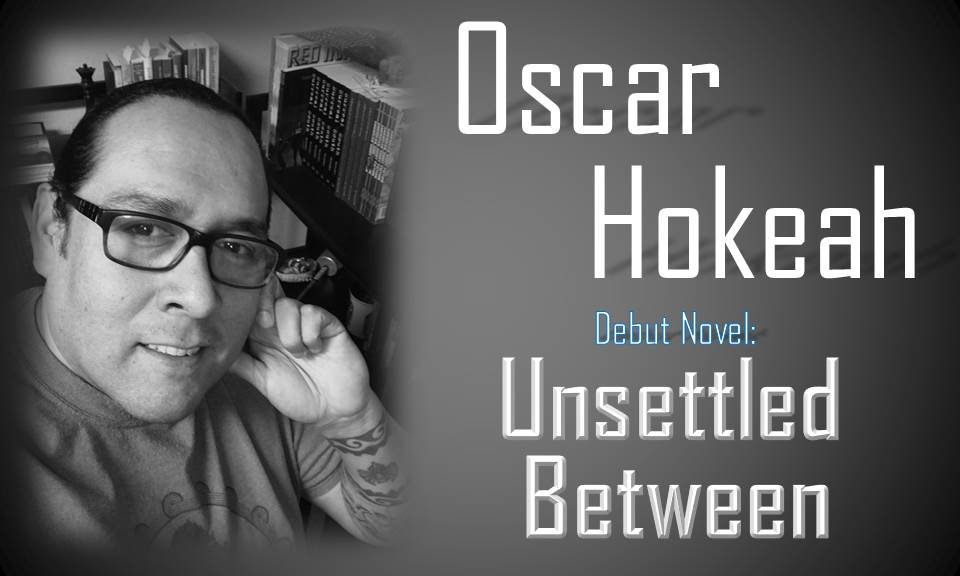
There are subcultures who maintain the values of matriarchy throughout the U.S. I'll speak here about tribal matriarchy because my experiences are based in Cherokee and Kiowa communities and culture. I'm also fortunate to belong to a family of matriarchs, where women in our family make the major decisions and delegate responsibilities.
"Our mothers echoed words they had echoed before—this time we listened. 'Being Kiowa will forever be about how we dance together.' Seemed like, being sisters, those words were a song that made them family, but more important: it made all Kiowas come together." -- Unsettled Between
Ever Geimausaddle finds himself being witness to brutality and subjected to abuse, where he develops deeply aggressive behavior. We also see this occur often in poor and disparagged communities. Ever's circumstances are no different. He encounters numerous examples of violence and domineering masculine attitudes, whether it's violence handed down from his father or colonial violence handed down from a history of conflict.
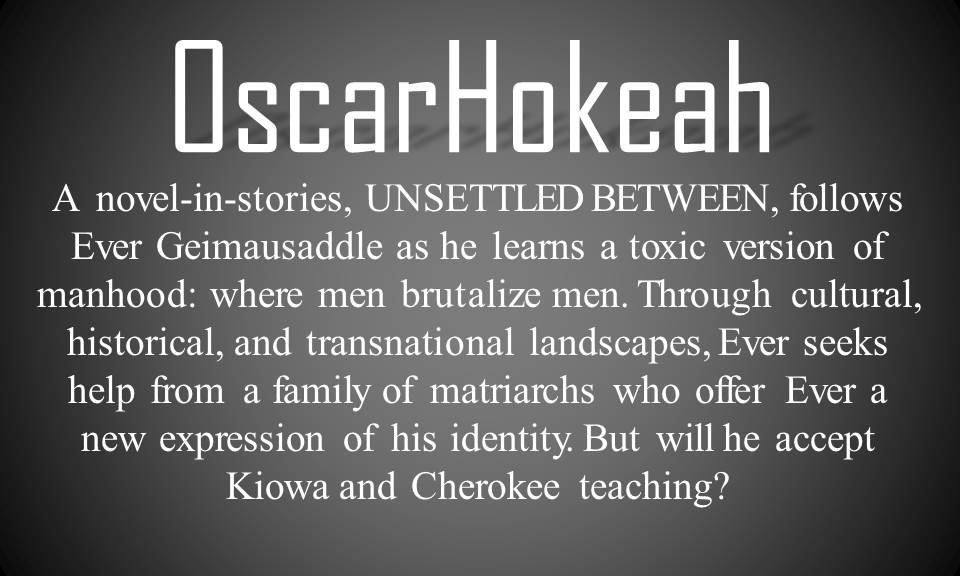
How does Ever handle these challenges? Better yet, how do the matriarchs in his family direct him? Moreover, are there matriarchal males present in his family to be role models?
"I ran into the living room, calling for my mother—ready to tattle, tell, and cry—but there was an old man sitting on the couch. He held this heavy coffee colored cane at his side. His skin had the texture of a turtle’s hide. His jaw seemed to hang lower than normal. My mother was at the store, he told me, introduced himself as an uncle, he claimed, a Bird Clan member, someone distant but a relative." -- Unsettled Between
At the end of the day, issues revolving around this current version of patriarchy needs to also be addressed by men. We, men, need to understand and then purge the violence we're trained to rehearse. Those of us who are more progressive, or who are willing to change, understand the ultimate self-destructiveness hyper masculine constructs bring.
"We were known as messengers. Cherokees depended on the Bird Clan to care for children who delivered original instructions between the spirit and material worlds. Bird Clan mothers protected birds in practical and ceremonial ways." -- Unsettled Between
Ever Geimausaddle was born into violence, rehearses violence, but he doesn't have to perpetuate violence to the next generation. In fact, if he can learn the lessons from the matriarchs in his family, he could potentially become the answer his tribal communities need: a male standing against patriarchy.
Support a Native owned Etsy shop, Allies United, where I offer unique merch for allies of social justice movements, like MMIW, Native Lives Matter and Black Lives Matter. Take a look inside my Etsy shop here: etsy.com/shop/AlliesUnited.
Story Like Bonsai are Reborn through Deadlines & Transformations
Like clipping and pruning back branches on a bonsai tree. Then we wire and train those branches to spread in the appearance of organic design reflective of the natural environment, taking careful consideration and steady hands. We have to make the right decisions. I've been revising Unsettled Between over the last two months and it's been a transformative process not only for the novel but for me as well. Writers get the pleasure of constant reflection, taking what's occurred in our own life and looking for material. I've always used my personal experiences to write fiction. There is no better way to draw unique and resonate stories. When I have a personal investment in the story, I tend to write with more intensity. This transfers well to the reader. They get more emotion and have a stronger connection to the characters. When I can relate to a character, whether this is in likeable or unlikable ways, I tend to be more interested to know how the story will turn out.I'm reminded of Alice Munro's short story, Child's Play. The main character is terribly unlikable. She's bitterly judgmental and cold. Then ultimately she commits the worst act imaginable. I've read this story at least two dozen times, and I shake my head every time I come to the ending. Munro expertly develops a character who I simultaneously hate and for some reason: I can't turn away. I have to read to the last word. And it pays off.Then I wonder if this character's personality is reflective of someone in Munro's life. Where did she get the inspiration to draw such a character?I turned in revisions for my novel, Unsettled Between, today. Today was the deadline. And I love deadlines. And I love feedback. Like cultivating bonsai, feedback and deadlines give me the shape and inspiration to complete a naturally flowing design for a novel.
Writers get the pleasure of constant reflection, taking what's occurred in our own life and looking for material. I've always used my personal experiences to write fiction. There is no better way to draw unique and resonate stories. When I have a personal investment in the story, I tend to write with more intensity. This transfers well to the reader. They get more emotion and have a stronger connection to the characters. When I can relate to a character, whether this is in likeable or unlikable ways, I tend to be more interested to know how the story will turn out.I'm reminded of Alice Munro's short story, Child's Play. The main character is terribly unlikable. She's bitterly judgmental and cold. Then ultimately she commits the worst act imaginable. I've read this story at least two dozen times, and I shake my head every time I come to the ending. Munro expertly develops a character who I simultaneously hate and for some reason: I can't turn away. I have to read to the last word. And it pays off.Then I wonder if this character's personality is reflective of someone in Munro's life. Where did she get the inspiration to draw such a character?I turned in revisions for my novel, Unsettled Between, today. Today was the deadline. And I love deadlines. And I love feedback. Like cultivating bonsai, feedback and deadlines give me the shape and inspiration to complete a naturally flowing design for a novel.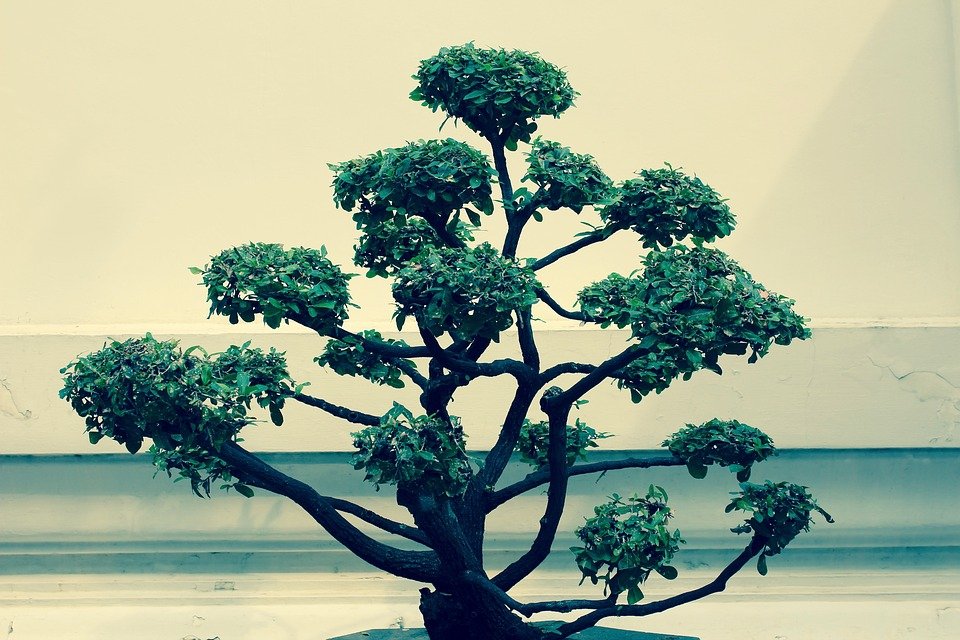 And like anything worth doing, I learned something new about myself during this round of revisions. Or maybe it was a remembering. That I can't force anything. The first month, July, I had such a hard time. I needed to replot my opening chapter so in essence it was going to become a different story, like making a tree into a bonsai--transformation was needed. It all came out and I was very pleased with the outcome, but the story seemed to want to do things on it's own timeline. The story told me what it wanted. I didn't tell it. This was something I knew--to allow the story to shape itself--but there was a part of me that wanted to force things to happen. And I was beat back everytime I tried.Once I let go, the story wrote itself. It was organic. The branches grew toward the sun and it became a much more pleasing process. Certainly, I pruned and trimmed and clipped a few leaves here and there. What bonsai enthusiast wouldn't? What writer wouldn't? But I worked with the structure rather than forcing it. The two main characters, protagonist and antagonist, battled it out and wrote the story for me. I simply sat back and watched the story manifest.
And like anything worth doing, I learned something new about myself during this round of revisions. Or maybe it was a remembering. That I can't force anything. The first month, July, I had such a hard time. I needed to replot my opening chapter so in essence it was going to become a different story, like making a tree into a bonsai--transformation was needed. It all came out and I was very pleased with the outcome, but the story seemed to want to do things on it's own timeline. The story told me what it wanted. I didn't tell it. This was something I knew--to allow the story to shape itself--but there was a part of me that wanted to force things to happen. And I was beat back everytime I tried.Once I let go, the story wrote itself. It was organic. The branches grew toward the sun and it became a much more pleasing process. Certainly, I pruned and trimmed and clipped a few leaves here and there. What bonsai enthusiast wouldn't? What writer wouldn't? But I worked with the structure rather than forcing it. The two main characters, protagonist and antagonist, battled it out and wrote the story for me. I simply sat back and watched the story manifest. Now I've given my novel, Unsettled Between, to my agent, Allie Levick. I'm excited. Nervous, yes, but ultimately ready for the good things coming. Whether it's another round of revisions or steps toward acquisition, I'm grateful for the novel's transformation and it's becoming something unique and powerful. I reflect, now, on a year ago and remember how the novel was, thinking of the small growth and the subtle shifts. It has not only grown, but with expert hands my agent and I have shaped it into a very interesting story--so much so, this story is new in it's form and concept, allowing me to dream of the moment when I can announce, "This is a story that has never been told."
Now I've given my novel, Unsettled Between, to my agent, Allie Levick. I'm excited. Nervous, yes, but ultimately ready for the good things coming. Whether it's another round of revisions or steps toward acquisition, I'm grateful for the novel's transformation and it's becoming something unique and powerful. I reflect, now, on a year ago and remember how the novel was, thinking of the small growth and the subtle shifts. It has not only grown, but with expert hands my agent and I have shaped it into a very interesting story--so much so, this story is new in it's form and concept, allowing me to dream of the moment when I can announce, "This is a story that has never been told."
Support a Native owned Etsy shop, Allies United, where I offer unique merch for allies of social justice movements, like MMIW, Native Lives Matter and Black Lives Matter. Take a look inside my Etsy shop here: etsy.com/shop/AlliesUnited.
(Images borrowed from Pixabay.com, commons.wikimedia.org, and needpix.com)
Fourth Wall Subtleties as Tool for Liberation in Native American Context
Suppose you're at a coffee shop and you're telling your best friend about your workday. You're saying so-and-so is building a case to take to human resources and will file a lawsuit soon. So-and-so has evidence of coercion and retaliation. Maybe it's based on gender. Maybe it's based on race. So-and-so will also file with the Equal Employment Opportunity Commission as a federal employee complaint due to implicit biases at work. Then you notice someone at the next table staring and listening with interest at all the juicy details.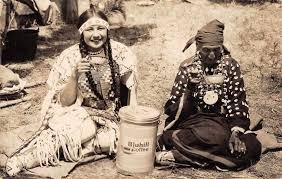 At this point you could choose to ignore the person and finish the story with your friend. But instead you acknowledge your listener by saying, "You should've been there," and then continue.Breaking the fourth wall is acknowledging the reader or disrupting the illusion of a fictional space. In post modernist literary terms it's called metafiction or authorial intrusion and meant to disrupt a structured order, especially one bent on maintaining hierarchies. Metafiction can happen in a variety of ways, such as an author inserting themselves into the story line or using a second person narrator or using a peripheral narrator who slips into the second person use of "you." The latter gives the audience the sense of listening over someone's shoulder, like the coffee shop scenario above.So why use this method? It's not common in literature. In fact, breaking the fourth wall is a stage or screen term and it happens in a movie when a character either looks at the camera or addresses the camera, meaning the audience.Many authors insert themselves into the story line and typically this is more of self congratulating behavior rather than having any real substance. In Bronte's Jane Eyre, she has Jane address the audience as a reaction to her loneliness. It enhances the story and character, as opposed to drawing attention to the author.As many of you know, I'm working through the final revisions of my novel. In this phase, I tend to contemplate anything and everything. I like to reason all the variables. Why I would approach a story a certain way. Or in this case: a novel.
At this point you could choose to ignore the person and finish the story with your friend. But instead you acknowledge your listener by saying, "You should've been there," and then continue.Breaking the fourth wall is acknowledging the reader or disrupting the illusion of a fictional space. In post modernist literary terms it's called metafiction or authorial intrusion and meant to disrupt a structured order, especially one bent on maintaining hierarchies. Metafiction can happen in a variety of ways, such as an author inserting themselves into the story line or using a second person narrator or using a peripheral narrator who slips into the second person use of "you." The latter gives the audience the sense of listening over someone's shoulder, like the coffee shop scenario above.So why use this method? It's not common in literature. In fact, breaking the fourth wall is a stage or screen term and it happens in a movie when a character either looks at the camera or addresses the camera, meaning the audience.Many authors insert themselves into the story line and typically this is more of self congratulating behavior rather than having any real substance. In Bronte's Jane Eyre, she has Jane address the audience as a reaction to her loneliness. It enhances the story and character, as opposed to drawing attention to the author.As many of you know, I'm working through the final revisions of my novel. In this phase, I tend to contemplate anything and everything. I like to reason all the variables. Why I would approach a story a certain way. Or in this case: a novel. As a Native American writer, it's especially important to have readers understand the Native world is not a fantasy world. It's real and filled with real consequences. I have to say this aloud because unfortunately many readers view our world as "romantic." Tragic, yes. But romantic. Meaning, Native lives are so far removed that many readers feel they can get lost among our pages in the same fashion as following around Frodo Baggins in the Lord of the Rings.
As a Native American writer, it's especially important to have readers understand the Native world is not a fantasy world. It's real and filled with real consequences. I have to say this aloud because unfortunately many readers view our world as "romantic." Tragic, yes. But romantic. Meaning, Native lives are so far removed that many readers feel they can get lost among our pages in the same fashion as following around Frodo Baggins in the Lord of the Rings.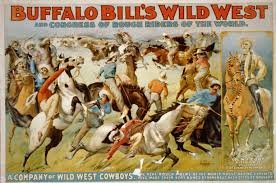 Ultimately, I insert myself into one of my story/chapters in order pull the reader out of the pages for a moment so as to consider these circumstances are not fantasy, but these types of things really happen in the Native world. Moreover, I harness the use of the "you" as a second person narrator addressing the main character so as to give the reader an opportunity to reflect on the character as potentially like themselves, where they have a short period of time where they get to "walk in his shoes." More or less, to humanize the character and allow the reader time to step back from their fantastical perspective.When you come from a world where colonization has transformed itself into distorting Native ideologies, you're going to want to help people understand it's not okay to romanticize us because it leads to exploitation. In that case, breaking the fourth wall or authorial intrusion becomes a tool for liberation.
Ultimately, I insert myself into one of my story/chapters in order pull the reader out of the pages for a moment so as to consider these circumstances are not fantasy, but these types of things really happen in the Native world. Moreover, I harness the use of the "you" as a second person narrator addressing the main character so as to give the reader an opportunity to reflect on the character as potentially like themselves, where they have a short period of time where they get to "walk in his shoes." More or less, to humanize the character and allow the reader time to step back from their fantastical perspective.When you come from a world where colonization has transformed itself into distorting Native ideologies, you're going to want to help people understand it's not okay to romanticize us because it leads to exploitation. In that case, breaking the fourth wall or authorial intrusion becomes a tool for liberation.
(Images were borrowed from Wikimedia, Wikipedia, and ferris.edu)
Twitter Serves Minority Writers: Intro to New Agent & #DVpit Success
Metaphorically #DVpit becomes water. Likewise, I could say Twitter is some type of container--a canteen maybe--something tethered to your belt. Whether you've been slinging a sledge hammer to break rocks or ripping callouses off your hands for grip on a climb, you're exhausted and you could use a drink. What you need is opportunity and energy to keep climbing, to keep breaking those rocks.I've said this a number of times on my blog. One of the biggest obstacles for minority writers is opportunity. There can be a number of reasons why you might not see much diversity at your writer's conference. Questions race through our minds. Where am I going to get the resources to attend? Who's going to take care of my kids? Will I lose my job? How will I pay my bills? And those are only a few of the questions. Economic disparity for minorities is not a new topic. It's easy to see how avenues for success can close down for a minority writer seeking to give voice to the voiceless, to represent her community in a genuine way.Little did I know #DVpit would be an environment for such opportunity. I read their website (www.dvpit.com) and I jumped onto their Twitter (@DVpit_). I understood the concept and was hopeful. The event was started by Beth Phelan and what grabbed me was the description:
"#DVpit is a Twitter event created to showcase pitches from marginalized voices that have been historically underrepresented in publishing. This includes (but is not limited to): Native peoples and people of color; people living and/or born/raised in underrepresented cultures and countries; disabled persons (including neurodiverse); people living with illness; people on marginalized ends of the socioeconomic, cultural and/or religious spectrum; people identifying within LGBTQIA+; and more." -- Beth Phelan.
After reading the description, I marked it on my calendar and started to prepare my pitch. I wasn't sure of what was to come of this "Diverse Voices Pitch" event, aka #DVpit, but I knew I had to try. What happened was this: I started to get "likes" or clicks which are hearts on Twitter. This is a good sign because a "like" means, "Hey, send me a query; I like what you're writing." So that's what I did. I had five agents click so I sent out five queries and I received five requests for manuscripts (two full and three partial). All five were from large literary agencies in New York and California. Oddly enough two of the agents were from the same agency so they worked out who would read the manuscript.Long story short, I signed with an agent. It took one week to filter through the process, and when I had to pull my submissions with the other agents they emailed back saying their congratulations. One of the agents read the full manuscript even though she wouldn't be representing the novel. She was very kind and generous with her compliments. I am completely humbled by it all.In this, I must give a big thank you to Beth Phelan for creating a space where minorities can navigate environments they might not otherwise be able. I highly recommend minority writers to seek out #DVpit for 2019. After looking into this event I also ran across other Twitter events which offer similar opportunities for writers, like #Pitmad, #PitchWars, #PitDark, and #PBPitch. I recommend writers to look into which pitching event fits your genre and participate. Take the time to develop your pitch, as well as your book (the market is still competitive and there is no guarantee).I've saved the best for last: I'm proud to announce I'm rep'd by Allie Levick of Writers House Literary Agency. I can't say enough about how excited I am. My palms have ripped through callouses getting to the next hold, and having Allie on my side makes me optimistic about the next climb. She is now representing my novel, UNSETTLED BETWEEN. You can find her via the Writers House website, www.writershouse.com, her personal website, www.alexandralevick.com, or her Twitter, @AllieLevick.
What happened was this: I started to get "likes" or clicks which are hearts on Twitter. This is a good sign because a "like" means, "Hey, send me a query; I like what you're writing." So that's what I did. I had five agents click so I sent out five queries and I received five requests for manuscripts (two full and three partial). All five were from large literary agencies in New York and California. Oddly enough two of the agents were from the same agency so they worked out who would read the manuscript.Long story short, I signed with an agent. It took one week to filter through the process, and when I had to pull my submissions with the other agents they emailed back saying their congratulations. One of the agents read the full manuscript even though she wouldn't be representing the novel. She was very kind and generous with her compliments. I am completely humbled by it all.In this, I must give a big thank you to Beth Phelan for creating a space where minorities can navigate environments they might not otherwise be able. I highly recommend minority writers to seek out #DVpit for 2019. After looking into this event I also ran across other Twitter events which offer similar opportunities for writers, like #Pitmad, #PitchWars, #PitDark, and #PBPitch. I recommend writers to look into which pitching event fits your genre and participate. Take the time to develop your pitch, as well as your book (the market is still competitive and there is no guarantee).I've saved the best for last: I'm proud to announce I'm rep'd by Allie Levick of Writers House Literary Agency. I can't say enough about how excited I am. My palms have ripped through callouses getting to the next hold, and having Allie on my side makes me optimistic about the next climb. She is now representing my novel, UNSETTLED BETWEEN. You can find her via the Writers House website, www.writershouse.com, her personal website, www.alexandralevick.com, or her Twitter, @AllieLevick.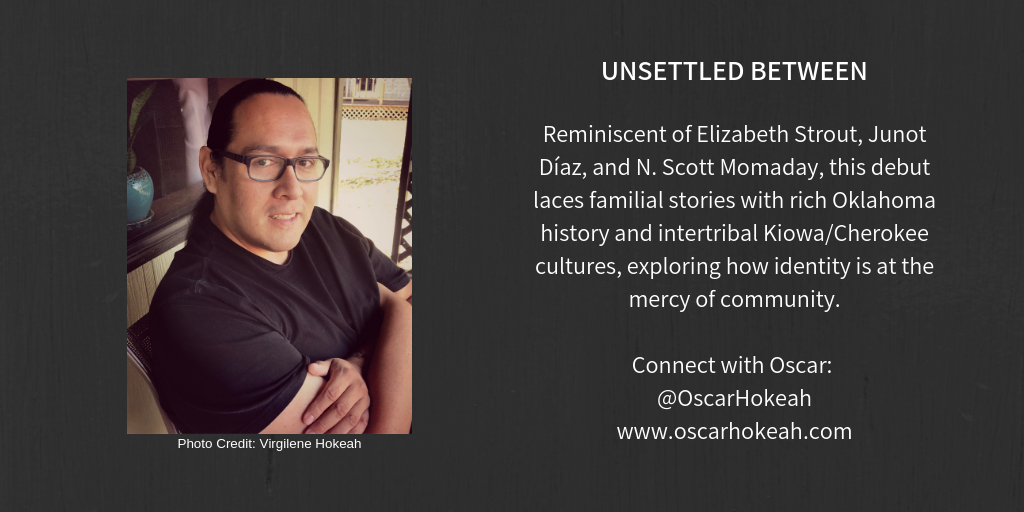
Twitter #DVpit & Announcements
Often we spend so much time looking down at our phones we forget to look up. I catch myself looking at the stars at night and the moving clouds in the day, realizing I'm watching them like I had when I was kid. Those were days before Reasor's Grocery Store in Tahlequah moved from Choctaw Street to Muskogee Avenue, and back when there was a drive-in theater outside my aunt's house on the southside of Lawton. Back then, we never looked down. I watch my kids and can see the pure optimism they carry in every moment, and I think that's what we admire about children. We say things like, "I wish I had just a little of their energy," and I wonder if what we really desire is to live every moment with sheer optimism. That's where they get their energy. Children have this way in the world which always holds onto the best in each moment.Today I have some great news to share. And it brings me some much needed optimism. First, I'm going to have to apologize for having went a few weeks without posting. I have great followers and each of you say profound things on my blog which blow me away. Often I find myself contemplating new avenues of thought after an exchange of ideas. For that I'm grateful, and for the same reason, I apologize for disappearing into the shadows.I'd like to say it was for good reason. I've been writing. More importantly, I've been preparing my novel, Unsettled Between, for review by agents. And that brings me to my news.Without saying too much, I participated in a Twitter pitch event called #DVpit and had some amazing results. I signed with a literary agent who will represent Unsettled Between.I can't believe my luck/fate/circumstances. We've decided to make a formal announcement this upcoming Thursday. I'll post her name and the agency she works for and her social media outlets in a couple of days. Look for the post here on my blog. We signed the agreement on Friday so we've had just a few days to move things along. I'll say this: She's already given me the editorial letter and hands down the adjustments will make the novel better.I'll save the rest for Thursday. I don't want to get too far ahead of myself. But what a great day to look up.
I watch my kids and can see the pure optimism they carry in every moment, and I think that's what we admire about children. We say things like, "I wish I had just a little of their energy," and I wonder if what we really desire is to live every moment with sheer optimism. That's where they get their energy. Children have this way in the world which always holds onto the best in each moment.Today I have some great news to share. And it brings me some much needed optimism. First, I'm going to have to apologize for having went a few weeks without posting. I have great followers and each of you say profound things on my blog which blow me away. Often I find myself contemplating new avenues of thought after an exchange of ideas. For that I'm grateful, and for the same reason, I apologize for disappearing into the shadows.I'd like to say it was for good reason. I've been writing. More importantly, I've been preparing my novel, Unsettled Between, for review by agents. And that brings me to my news.Without saying too much, I participated in a Twitter pitch event called #DVpit and had some amazing results. I signed with a literary agent who will represent Unsettled Between.I can't believe my luck/fate/circumstances. We've decided to make a formal announcement this upcoming Thursday. I'll post her name and the agency she works for and her social media outlets in a couple of days. Look for the post here on my blog. We signed the agreement on Friday so we've had just a few days to move things along. I'll say this: She's already given me the editorial letter and hands down the adjustments will make the novel better.I'll save the rest for Thursday. I don't want to get too far ahead of myself. But what a great day to look up.